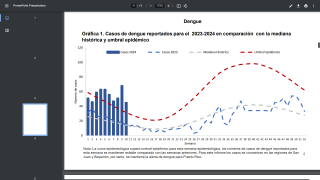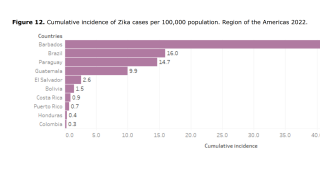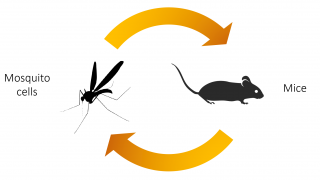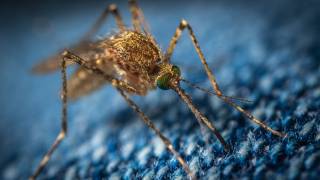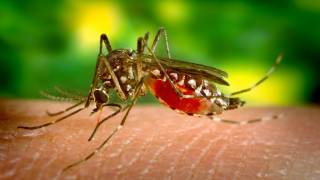Zika Virus Impacts Adult Brains Too

The Zika virus attracted worldwide attention due to the consequences of infection for pregnant women, many of which delivered infants suffering from microcephaly and other severe neurological malformations.
And this health risk continues today.
As an example, the state of Florida reported 19 pregnant women have contracted Zika, as of September 3, 2019.
To fully appreciate the health risk from the Zika virus, new research published on September 5, 2019, reported a Zika infection is also toxic to the adult brain.
Researchers led by neuroscientists Sergio T. Ferreira e Claudia Figueiredo and virologist Andrea Da Poian at the Federal University of Rio de Janeiro, Brazil, have now discovered why and the Zika virus impacts an adult’s brain.
Contrary to the previous belief that Zika only infects neuronal progenitor cells or neurons that are still immature in the developing brain, they found that the virus-infected and replicated in adult human tissue, producing new viral particles capable of infecting more cells.
But what are the consequences of this Zika infection?
To address this question, these researchers injected the Zika virus (ZIKV) directly into the brains of mice.
As the researchers explained in a press release, "Infected mice exhibited marked memory impairment that persisted even after infection had been fought off by the organism.”
“Moreover, this was consistent with the fact that brain regions responsible for learning and memory processing were the main sites of viral replication in their brains."
The work further showed that infection by ZIKV causes a strong inflammatory response in the mouse brain, and this includes activation of brain resident immune cells called microglia.
Fernanda Barros-Aragão, a Ph.D. student and author of the study, explains that this exaggerated inflammatory response is ultimately responsible for memory loss: "Neurons communicate through highly specialized regions called synapses.”
“Surprisingly, we found that microglia that become aberrantly activated upon infection by ZIKV attack and engulf synapses.”
“This impairs communication between neurons and, therefore, the formation of new memories." Interestingly, when animals were treated for about one week with anti-inflammatory drugs capable of blocking microglial activation, they recovered memory.”
The results from this study indicate that the adult brain is damaged by infection by ZIKV, and point to the need to carefully evaluate learning and memory performance in follow-up assessments of infected adults.
Although no specific treatments for ZIKV infection are yet available, these findings further reveal the possibility that neurological symptoms caused to infection by controlling brain inflammation.
This new paper’s finding supports a 2018 study’s conclusion that indicates a Zika virus infection can lead to an impact on the brain.
The new paper entitled "Zika virus replicates in adult human brain tissue and impairs synapse function and memory in adult mice" was published in Nature Communications.
The study was funded by the Carlos Chagas Filho Foundation for Research Support in the State of Rio de Janeiro (FAPERJ), the National Council for Scientific and Technological Development (CNPq), the Coordination for the Improvement of Higher Education Personnel, Ministry of Education (CAPES / MEC), the Funding Agency for Studies and Projects (FINEP), the National Institute of Science and Technology for Structural Biology and Bioimaging (INBEB), the National Institute for Innovation in Pharmaceutical Products and Identification of New Therapeutic Targets (INOVAMED), and the National Institute of Science and Technology for Translational Neuroscience (INNT).
Published by Zika News
Our Trust Standards: Medical Advisory Committee

